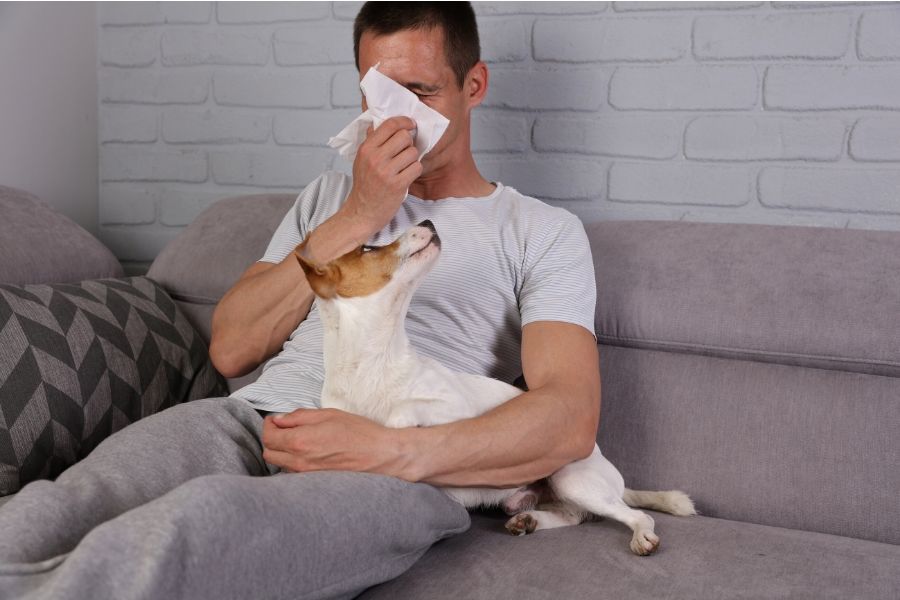
We love animals - both domestic and those living in the wild. But sometimes we don't realize that we can get many unpleasant diseases from them. What should we do to protect ourselves from illnesses and to enjoy safe play with our pets?
| 11th of March 2020 |
What kind of illnesses can we get from animals?
One of the serious diseases that animals carry is rabies. The virus attacks the human nervous system, and there is still no effective cure. You can get infected not only by a bite but also by a scratch. Fortunately, it is becoming increasingly popular to spread rabies vaccines in the forest. Pets are also vaccinated against rabies on a mass scale, which significantly reduces the risk of the disease, even among humans.
The less common disease is brucellosis. It is a chronic infection, also called Maltese fever. The microorganisms that cause it can live in the dust and hair of an animal for up to six months. A person can become infected by direct contact with an animal, e.g. while playing together.
Parasitic diseases are also common. Parasitic eggs are deposited in the soil together with animal faeces, and the infection occurs through the digestive system - through dirty hands, food or toys.
Who and how can get infected by animal diseases?
People with reduced immunity are particularly vulnerable to animal diseases. The elderly, chronically ill, small children and pregnant women are also at risk. Each of these groups should be particularly careful when dealing with wild animals as well as with strangers.
The diseases can be transmitted from animals not only by stroking but also by scratching, biting, contact with faeces or eating sick animal meat. Recently it turned out that one of the carriers of the popular coronavirus was a wild mammal - a pangolin, which is illegally sold because of its scales and meat.
What can you do to protect yourself from infection?
In order to protect yourself from infection, you must, first of all, follow hygiene rules. Don't play with animals you don't know, and remember to wash your hands in case of accidental contact.
Also, take care of your pet's health - systematic vaccinations and baths can effectively protect your pet from many diseases, including those caused by parasites.
The first case of COVID-19 infection in a dog
When an epidemic of a given disease develops, you should carefully observe your animal and stay with him/her as little as possible in large groups of people. Then, just as with the treatment of human diseases, you reduce the risk of illness and the transmission of harmful microorganisms.
Just a few days ago, the Hong Kong Health Department confirmed the first case of coronavirus in a dog. Its owner was infected with COVID-19. The dog was quarantined. So let's remember about your pets during the period of increased morbidity.